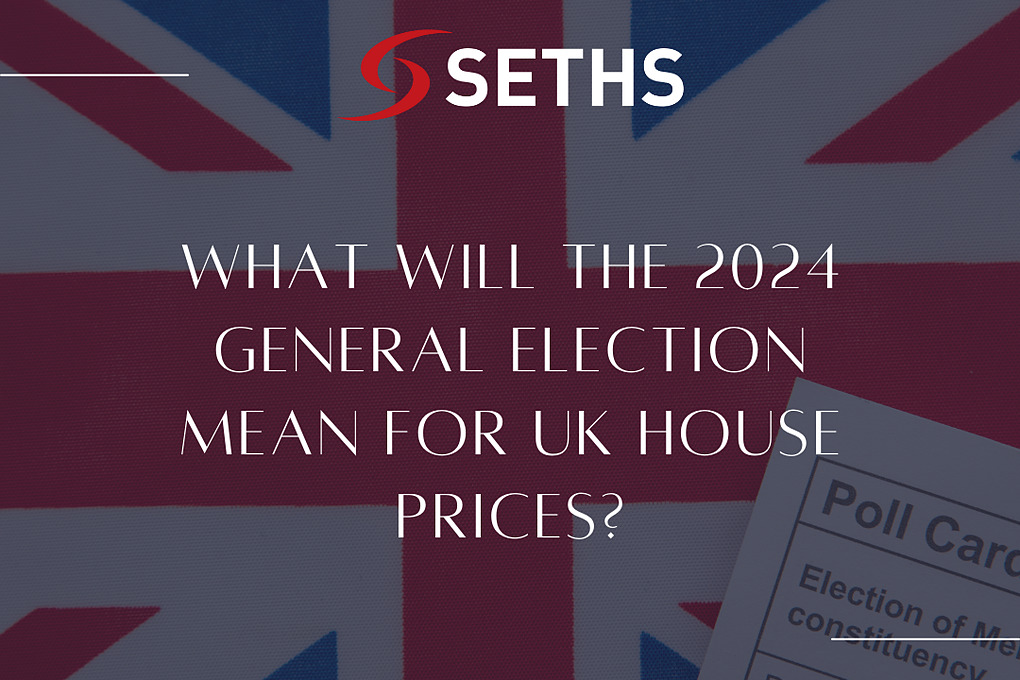What will the 2024 General Election Mean for UK House Prices?

- Jun 11th 2024
As the UK general election campaign intensifies, housing has become a focal point of debate among the major parties.
The Labour Party plans to reintroduce home building targets and implement a Freedom to Buy scheme. In contrast, the Conservatives pledge to maintain current stamp duty thresholds and revive the Help to Buy initiative.
This comes at a time when homeowners and potential buyers might face prolonged higher mortgage rates, as the election could delay interest rate cuts. This situation is compounded by a housing supply crisis, which banks urge Parliament to prioritise upon its return in mid-July.
Impact of the General Election on UK House Prices
Since the election was called on May 22 by Rishi Sunak, it’s too early to definitively assess its impact on house prices. The market’s reaction may become clearer by late June.
At the time of the election call, there was a growing north-south divide in house price inflation and a muted spring bounce. Despite 16-year high interest rates, there were expectations of better-than-anticipated price growth for 2024, partly due to increased pragmatism amongst buyers regarding property type and size.
Research by the Institute for Fiscal Studies (IFS) shows that home ownership amongst 25 to 34-year olds had recently recovered to 2010 levels, with 39% owning homes by the end of the 2022/23 financial year, though this figure is 20 percentage points lower than in 2000. Home ownership in the 45 to 59 age bracket also declined by seven percentage points since 2010.
Property data firm TwentyEA found that the general election has not derailed the housing market so far. In the 14 days following the election announcement, the number of properties listed as sold subject to contract (SSTC) rose by 9% compared to the same period in 2023. Additionally, new instructions increased by 3.4%, aligning with pre-pandemic levels in 2019.
Historical Impact of UK Elections on House Prices
Property market analysts have studied the impact of previous national polls on house prices to predict future trends. Nationwide, which tracks house prices at the mortgage approval stage, found that price growth trends six months before an election generally continue similarly for the six months following the election. The 2019 election was an exception due to the Covid-19 pandemic.
However, mortgage approvals around elections show less consistency. For instance, the 1997 election saw a significant dip in approvals following the Bank of England’s independence declaration by then-Chancellor Gordon Brown. The 2019 election also caused a sharp decline in approvals due to the pandemic.
Nationwide’s chief economist, Robert Gardner, noted that housing market trends are not typically impacted by general elections, as most homebuyers do not prioritise elections when buying or selling property.
Rightmove’s survey echoed this sentiment, with 95% of prospective buyers indicating that a general election would not alter their plans. Rightmove’s research into buyer demand during the 2015 and 2019 elections showed steady demand, with significant increases immediately after the elections.
Housing Market Expectations Post-Election
Industry insiders generally support Labour’s Freedom to Buy scheme, the Mortgage Guarantee, and the Conservatives’ promise to maintain stamp duty thresholds. Labour, however, has not ruled out lowering the first-time buyer stamp duty exemption from £425,000 to £300,000 by March 2025.
The Conservatives aim to revive the Help to Buy scheme with more affordable terms and extended the Mortgage Guarantee Scheme beyond June 2025.
Political stability is a key concern for experts, with a need for consistent housing ministers and long-term housing reforms. Stability could enhance market confidence and encourage more buyers.
Streamlining the planning process and accelerating house-building are top priorities for the industry. Simplifying the process could boost the delivery of affordable homes and benefit both first-time buyers and downsizers.
Reforming the Land Registry to speed up transactions and reduce fall-through rates is another desired change.
Is Now a Good Time to Sell?
If considering a sale, the current advice is to proceed, leveraging the spring market. Winkworths’ analysis shows that spring is historically the best time for property sales, with homes selling faster than in winter.
Although the election might slow new sales agreements, maintaining realistic pricing can help sellers achieve successful transactions this year. Delayed interest rate cuts due to the election could also affect affordability, but easing inflation and potential future rate reductions may improve the situation later in the year.
Ultimately, decisive election results and easing mortgage rates could bolster market confidence and improve affordability for buyers.








